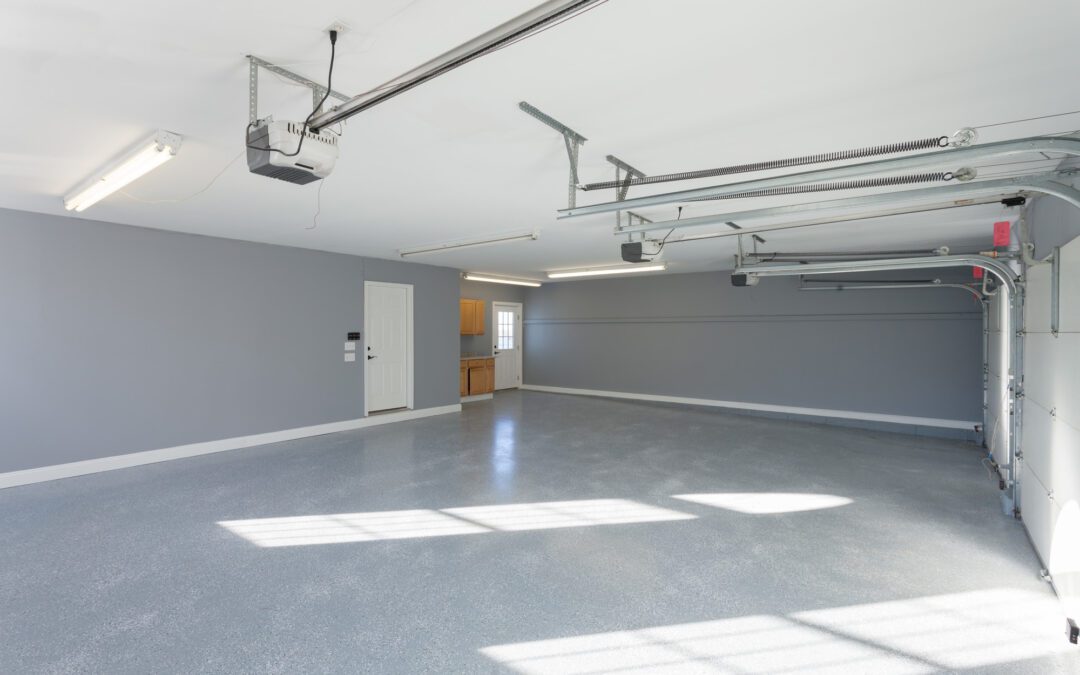Mold is the last thing any homeowner wants to deal with.
It has the unpleasant effect of discoloring concrete surfaces, and it can cause serious health issues. And if you spend any amount of time in your garage, the sudden appearance of a mold infestation can put a real damper on your day.
This is why it’s important to prevent the growth and spread of mold in the first place. There are simple steps you can take to anticipate the onset of nuisance molds. Whether it’s garage floor coatings, better ventilation, or increased drainage, we’ve got some tips for how to protect concrete floors.
Some Mold Basics
There are many kinds of molds that can infest homes.
These include Acremonium, Aspergillus, Trichoderma, and the fearful black mold (Stachybotrys atra). Some of these molds can be more harmful than others. But the worst of them can cause serious health problems.
Reasons for Mold Infestations on Concrete
The prerequisites for mold growth are moisture and a ready source of food.
The food source for molds is hard to control, since dust and bacteria collect in the inevitable nooks and crannies of any concrete surface. That leaves the matter of moisture, which is typically the one variable that determines whether you’ll experience mold growth.
For instance, water intrusions into your garage can happen when hydrostatic pressure forces water through the concrete. Or, a damp and humid environment can foster the rapid growth of mold and fungus on concrete surfaces.
Mold Removal
If you already have mold infesting your concrete flooring, removal shouldn’t be too difficult.
A professional service can take care of the infestation. The removal usually involves fungicides and physical removal of the mold (scrubbing, sandblasting, etc.). HEPA filtration is employed to prevent spores from spreading to other areas of the home.
Mold Prevention
Of course, it’s far better to get in front of the problem, and stop the spread of mold in the first place. Certain techniques have the best success rates in preventing mold growth. Here are three good steps to take:
Garage Floor Coatings
As a first line of defense, it’s important to look for good garage floor protective coatings. The application of strong polyurea concrete floor coatings will prevent the accumulation of moisture.
Dry, moisture-free coatings for garage floors will lessen the chances of mold spores acquiring a foothold.
Better Drainage
This is helpful if water intrusion is your major source of moisture. Installing an interior footing drain helps prevent water from accumulating. And don’t forget possible external solutions, such as redirecting downspouts to reduce standing water outside your garage.
Humidity Control
If you live in a humid environment, there are ways to lower relative humidity in your garage. Improved ventilation is a good first step to lower the humidity, and stop the conditions that conduce to the spread of mold and fungus.
Protect Your Concrete Floors With the Best Coatings
Mold is a serious health concern, so don’t ignore its threat. As part of your preventive measures, look for garage floor coatings that are designed to prevent moisture and resist mold.
Contact us today at Garage Force of Kentuckiana, and let us help you find the right coating system for your concrete floor.

